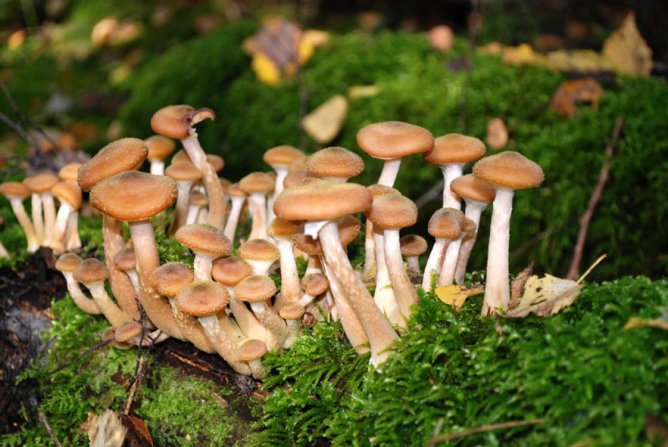 Chemists of Moscow State University have identified a catalyst that allows you to convert any mushrooms into synthetic biofuels. The catalyst can directly convert fatty acid esters of glycerol (triglycerides), which make up most of the fungal biomass, into fuel. This reaction is the result of the action of compounds of silicon, aluminum, platinum and palladium, which, at a temperature of 300-400 degrees Celsius, break down triglycerides into hydrocarbon molecules.
Chemists of Moscow State University have identified a catalyst that allows you to convert any mushrooms into synthetic biofuels. The catalyst can directly convert fatty acid esters of glycerol (triglycerides), which make up most of the fungal biomass, into fuel. This reaction is the result of the action of compounds of silicon, aluminum, platinum and palladium, which, at a temperature of 300-400 degrees Celsius, break down triglycerides into hydrocarbon molecules.
The university notes that the biofuel obtained by Russian chemists has many advantages. It is more stable compared to classic biodiesel, consisting of ethers of butyric acids, and is stored longer. "It is also closer in properties to 'ordinary' petroleum products, which simplifies the development and operation of vehicles and propulsion systems," the press service of Moscow State University said.
The economic efficiency of discovery and the competitiveness of technology is not yet clear.
Based on agronews.com.

